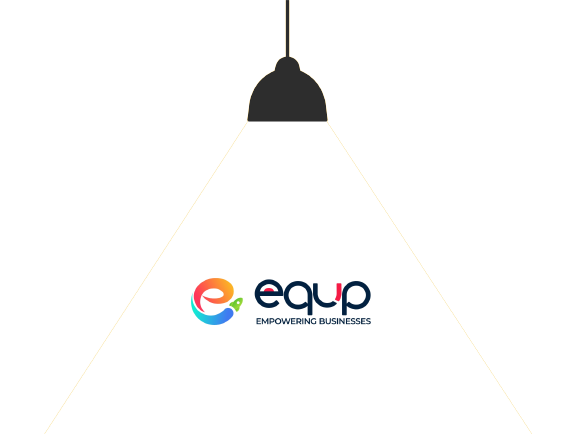
While email marketing is a tried-and-true strategy, the landscape is constantly evolving. And if you’ve been using Constant Contact, you might be wondering if there’s something more tailored to your needs, something that can take your automated and personalized email campaigns to the next level. In short, you are looking for alternatives to Constant Contact.
If you’re a business owner or even a marketer, chances are you’re no stranger to the world of email marketing. You know how important it is to craft engaging emails, nurture leads, and strive to create personalized, attention-grabbing campaigns that make subscribers say, “Wow, they really get me!”
In this blog, we’ll be discussing different Constant Contact alternatives, specifically those that are perfect for automating and personalizing your email marketing efforts. Whether you’re a seasoned pro or just starting, we’ve got something for everyone.
So, let’s start this journey by exploring email marketing automation, finding the right alternatives, and supercharging your campaigns for maximum impact.
The Role of Automation in Modern Email Marketing
Gone are the days of manually sending generic emails to a vast subscriber list and hoping for the best. Email marketing automation has evolved to become the backbone of successful email campaigns. Here’s why automation plays a pivotal role:
- Efficiency: Automation streamlines repetitive tasks. Instead of crafting and sending individual emails, you can set up automated workflows that trigger emails based on specific actions or schedules. This saves time and ensures your audience receives timely messages.
- Personalization: Modern consumers expect personalized experiences. Automation allows you to segment your audience based on factors like behavior, location, and preferences. You can then deliver highly targeted content that resonates with each segment, boosting engagement and conversions.
- Timeliness: Automation ensures that your emails reach subscribers at the right moment. For example, you can send a welcome email immediately after someone signs up or a birthday discount on the subscriber’s special day. These timely messages enhance the customer experience.
- Scalability: As your subscriber list grows, manual email management becomes impractical. Automation scales effortlessly, allowing you to maintain a high level of engagement even with a large audience.
- Data-Driven Insights: Automation platforms provide valuable insights into the performance of your email campaigns. You can track open rates, click-through rates, conversion rates, and more, gaining a deeper understanding of what resonates with your audience.
- Abandoned Cart Recovery: E-commerce businesses benefit greatly from automation features like abandoned cart recovery. When a customer abandons their shopping cart, automation can send a reminder email, encouraging them to complete their purchase.
Why Do You Need Automated Email Campaigns for Success?

In the competitive landscape of email marketing, success is measured by engagement, conversions, and return on investment (ROI). Here’s why automated email campaigns are essential for achieving these goals:
- Consistency: Automated campaigns ensure consistent communication with your audience. Whether it’s a welcome series for new subscribers, regular newsletters, or follow-up emails, automation guarantees that your messages are delivered as planned.
- Segmentation and Targeting: Automated campaigns allow you to segment your audience based on various criteria, such as purchase history, browsing behavior, or demographics. This level of targeting leads to higher relevance and engagement.
- Lead Nurturing: Nurturing leads is a crucial part of the customer journey. Automated drip campaigns deliver a series of emails designed to educate, build trust, and guide leads toward conversion, all without manual intervention.
- Improved Conversion Rates: Automation can trigger emails based on specific actions, such as abandoned carts or clicks on product recommendations. These timely messages are highly effective at converting leads into customers.
- Time and Resource Savings: Manual email marketing requires significant time and resources. Automation frees up your team to focus on other strategic tasks while your email campaigns run efficiently in the background.
- Enhanced Customer Experience: Personalization, timeliness, and relevance are key components of a positive customer experience. Automated campaigns deliver on these fronts, leading to happier and more loyal customers.
- Data-Driven Optimization: Automation platforms provide data and analytics that empower you to refine your email marketing strategy continually. You can A/B test different elements, analyze performance, and make data-driven improvements.
Email marketing automation is no longer a luxury but a necessity for modern businesses. It streamlines processes, enhances personalization, and drives better results. By understanding its role in modern email marketing and recognizing the need for automated campaigns, businesses can harness the power of automation to achieve success in their email marketing endeavors.
Evaluating Constant Contact Alternatives
While Constant Contact is a popular choice, there are several alternatives that offer unique features and capabilities. In this cluster, we’ll explore the key features to look for in Constant Contact alternatives and provide a comparison of top email marketing automation platforms.
Key Features to Look for in Constant Contact Alternatives
When searching for alternatives to Constant Contact, it’s essential to consider the following key features to ensure you choose a platform that aligns with your email marketing goals:
- Automation Capabilities: Look for a platform that offers robust automation features, including drip campaigns, workflow automation, and behavior-triggered emails. Automation streamlines your email marketing efforts and allows for personalized communication with your audience.
- Personalization Tools: Personalization is a game-changer in email marketing. Seek a platform that enables dynamic content, list segmentation, and personalization based on user behavior and preferences. Personalized emails tend to have higher open and click-through rates.
- A/B Testing: The ability to perform A/B testing is vital for optimizing email campaigns. Check if the alternative platform supports A/B testing for subject lines, email content, and send times. This feature helps you refine your campaigns for better results.
- Integration Options: Your email marketing platform should integrate seamlessly with other tools you use, such as CRM systems, e-commerce platforms, and analytics tools. Integration simplifies data sharing and provides a holistic view of your customer interactions.
- Reporting and Analytics: Robust reporting and analytics are essential for measuring the effectiveness of your email campaigns. Look for features like open rate tracking, click-through rate analysis, conversion tracking, and audience engagement metrics.
- Scalability: Consider your long-term needs. A platform that can scale with your business as it grows is crucial. It should accommodate an increasing number of subscribers and allow for more complex campaigns without compromising performance.
- Deliverability: Ensure that the platform has a strong reputation for email deliverability. High deliverability rates are essential to ensure your emails reach your subscribers’ inboxes rather than ending up in spam folders.
- Template Design and Customization: Look for a platform that offers user-friendly email design tools with customizable templates. Easy-to-use drag-and-drop editors can save you time and help you create visually appealing emails.
- Compliance and Security: Email marketing platforms must adhere to data protection regulations like GDPR and provide robust security measures to protect your subscribers’ information.
- Customer Support and Training: Reliable customer support and comprehensive training resources are invaluable, especially if you’re new to the platform. Make sure the alternative platform offers responsive support and educational materials.
A Comparison of Top Email Marketing Automation Platforms

To help you make an informed decision, let’s compare some of the top email marketing automation platforms that can serve as alternatives to Constant Contact:
Mailchimp:
- Known for user-friendly design and extensive integrations.
- Offers automation features like drip campaigns and customer journey mapping.
- Strong reporting and A/B testing capabilities.
- Free plan available for small businesses.
EQUP:
- EQUP is an emerging email marketing automation platform known for its user-friendly interface.
- Offers automation features such as drip campaigns and workflow automation.
- Provides personalization tools for tailored content.
- A/B testing and analytics for campaign optimization.
- Scalable to accommodate growing business needs.
- Emphasizes deliverability to ensure emails reach inboxes.
- Compliance with data protection regulations.
EQUP is a platform worth considering as an alternative to Constant Contact, particularly for its user-friendly interface and emphasis on deliverability.
GetResponse:
- Powerful automation features, including automation templates and workflow builder.
- Advanced personalization with dynamic content.
- Comprehensive reporting and analytics.
- Excellent deliverability rates.
ActiveCampaign:
- Known for advanced automation and behavioral tracking.
- Highly personalized campaigns with dynamic content.
- A/B testing and in-depth reporting.
- Suitable for businesses focused on customer journeys.
SendinBlue:
- Affordable email marketing automation with automation workflows.
- Excellent transactional email capabilities.
- A/B testing and detailed reporting.
- Good choice for budget-conscious businesses.
These are just a few alternatives to Constant Contact, each with its own set of features and strengths. Evaluating these platforms based on your specific needs and goals will help you make the right choice for your email marketing endeavors. One of the best alternatives to Constant Contact is the one that aligns most closely with your objectives and offers the features you require to succeed in the competitive world of email marketing.
Personalizing Email Campaigns Effectively
Personalization is not just a buzzword in the world of email marketing; it’s a game-changer. When you tailor your email campaigns to individual recipients, you tap into the immense power of personalization. Here’s why it matters:
- Building Connections: Personalization fosters a sense of connection between your brand and the recipient. It’s not just another generic message; it’s a message crafted with them in mind.
- Boosting Engagement: Personalized emails are more engaging. When recipients see content that’s relevant to their interests or needs, they’re more likely to open, read, and interact with your emails.
- Increasing Conversions: Ultimately, personalization can lead to higher conversion rates. When your emails address the recipient’s specific pain points or preferences, they’re more inclined to take action, whether it’s making a purchase, signing up for a webinar, or downloading an e-book.
- Enhancing Customer Loyalty: Personalized communication makes customers feel valued. When customers feel valued, they’re more likely to become loyal advocates for your brand.
- Reducing Unsubscribes: Generic and irrelevant emails are a quick path to unsubscribes. Personalized content, on the other hand, is less likely to be seen as spammy or annoying.
Strategies for Creating Personalized Email Content

Now that we’ve established the importance of personalization, let’s dive into strategies for crafting personalized email content that resonates with your audience:
- Segment Your Audience: Effective personalization begins with audience segmentation. Divide your email list into groups based on demographics, behaviors, or preferences. For instance, segment by location, purchase history, or engagement level.
- Dynamic Content: Use dynamic content blocks within your emails. This allows you to display different content to different segments within the same email, ensuring each recipient sees the most relevant information.
- Personalize Subject Lines: The subject line is the first thing recipients see. Use their name or reference their recent activity to grab their attention and show that your email is tailored to them.
- Behavioral Triggers: Set up triggers based on recipient behavior. For example, if a subscriber abandons their shopping cart, send them an email reminding them to complete the purchase with personalized product recommendations.
- Use Recipient Data: Leverage data you’ve collected about your subscribers. This could include their purchase history, browsing behavior, or survey responses. Use this data to recommend products, offer discounts, or suggest content that aligns with their interests.
- Lifecycle Emails: Craft personalized emails that correspond to different stages of the customer journey. Welcome emails, birthday emails, and re-engagement emails all provide opportunities for personalization.
- A/B Testing: Continuously test different elements of your emails, including personalized content. A/B testing helps you refine your personalization strategies by identifying what resonates best with your audience.
- Analyze and Iterate: Pay attention to the results of your personalized campaigns. Analyze open rates, click-through rates, and conversion rates to understand what’s working. Use these insights to refine your personalization efforts for future campaigns.
Personalization is not a one-size-fits-all approach in email marketing. It’s a dynamic strategy that requires audience segmentation, data analysis, and ongoing refinement. When done right, it can transform your email campaigns from generic messages into highly engaging, conversion-driving communications that build strong customer relationships.
Platform Spotlight: EQUP for Automated and Personalized Campaigns

EQUP has gained recognition in the world of email marketing for its robust features and user-friendly interface. It provides a comprehensive solution for businesses seeking to take their email campaigns to the next level, with a particular emphasis on automation and personalization.
Key Features of EQUP
- Advanced Segmentation: EQUP’s segmentation capabilities allow you to divide your email list into highly targeted groups based on demographics, behavior, and other criteria. This precision is the foundation of effective personalization.
- Email Automation: EQUP excels in automating email workflows. From welcome series to drip campaigns and cart abandonment emails, you can set up and customize automated sequences to engage your audience at the right moments.
- Personalization Tools: EQUP’s personalization tools enable you to insert dynamic content into your emails based on recipient data. Whether it’s addressing subscribers by name or recommending products based on their browsing history, personalization is made easy.
- A/B Testing: Testing is crucial for optimizing email performance. EQUP provides A/B testing capabilities to help you refine your subject lines, email content, and sending times for better results.
- Analytics and Reporting: Gain insights into the effectiveness of your campaigns with EQUP’s analytics and reporting features. Track open rates, click-through rates, conversion rates, and more to refine your strategies.
- Integration Options: EQUP offers integrations with popular e-commerce platforms, CRM systems, and other marketing tools, ensuring seamless data flow and synchronization.
How EQUP Enhances Automated Campaigns
Automated email campaigns are a cornerstone of effective email marketing, and EQUP empowers businesses to create and manage these campaigns effortlessly. Here’s how EQUP excels in this aspect:
- Behavior-Based Triggers: Set up triggers based on user behavior, such as website visits, email opens, or specific actions taken on your platform. EQUP can automatically send tailored follow-up emails to engage customers based on these triggers.
- Drip Campaigns: Create drip campaigns that nurture leads over time. EQUP’s intuitive interface allows you to map out the customer journey and automate the delivery of content at precise intervals.
- Cart Abandonment Recovery: For e-commerce businesses, cart abandonment emails are invaluable. EQUP’s automation capabilities can help recover potentially lost sales by sending timely reminders and incentives.
Harnessing Personalization with EQUP
Personalization is more than just addressing recipients by their first name. EQUP elevates personalization to a sophisticated level:
- Dynamic Content: Insert dynamic content blocks that change based on user data. This allows you to showcase tailored product recommendations, personalized offers, and relevant content.
- Segment-Specific Campaigns: Leverage EQUP’s segmentation capabilities to create campaigns that resonate with specific audience segments. Whether it’s loyal customers, new subscribers, or dormant users, you can tailor your messaging accordingly.
Getting Started with EQUP

Implementing EQUP for your automated and personalized email campaigns is a strategic move, but it’s essential to start with a well-thought-out plan:
- Define Your Goals: Clearly define the objectives of your email campaigns, whether it’s increasing sales, improving engagement, or driving website traffic.
- Data Collection: Ensure that you have clean and accurate customer data. The success of personalization relies on having the right information about your audience.
- Segmentation Strategy: Develop a segmentation strategy that aligns with your campaign goals. EQUP’s advanced segmentation tools will be instrumental in this process.
- Content Planning: Craft compelling content that speaks to each segment of your audience. EQUP’s dynamic content capabilities will be your ally in delivering personalized messages.
- Testing and Optimization: Continually test different elements of your campaigns and use EQUP’s A/B testing features to optimize your emails for better results.
- Monitor and Analyze: Regularly monitor the performance of your campaigns using EQUP’s analytics tools. Use the data to refine your strategies and achieve better results over time.
Thus, EQUP is a formidable alternative to Constant Contact, especially if you’re looking to supercharge your automated and personalized email campaigns. With its advanced features, user-friendly interface, and a focus on personalization, EQUP can help you engage your audience more effectively and drive better results in your email marketing efforts. Success with EQUP, as with any email marketing platform, lies in careful planning, strategic execution, and continuous optimization.